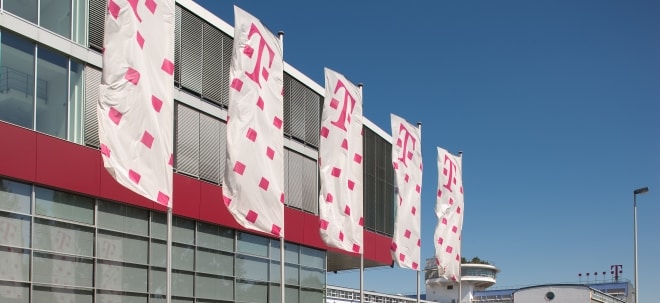http://www.radioaustralia.net.au/international/...irhighlights/410292
Updated 29 February 2012, 11:35 AEST
Its dubbed "the land of the unexpected" and Papua New Guinea's politicians have certainly lived up to that reputation over the past few months.
Since December two men have claimed the Prime Minister's job, one with the support of parliament, the other initially backed by the courts.
Last month the division led to a brief military mutiny.
But still both Peter O'Neill and Sir Michael Somare squabble over political power.
Presenter:Sean Dorney, Australia Network's Pacific Correspondent
Speaker:Belden Namah, PNG Deputy Prime Minister; Sir Michael Somare, Supreme Court Reinstated Prime Minister; Peter O'Neill, Parliament Elected Prime Minister; Jeffery Nape, Speaker December 14th 2011; Paul Barker, Director, PNG Institute of National Affairs; Dame Carol Kidu ,PNG Opposition Leader; Sam Abal, PNG Deputy Opposition Leader; Ian Kemish, Australian High Commissioner to PNG
DORNEY:These were the guns used in the half day mutiny in Papua New Guinea in late January when disgruntled soldiers joined a retrenched Colonel in an abortive attempt to take control of the military and reinstate Sir Michael Somare as Prime Minister.
["Belden Namah, PNG's Deputy Prime Minister - January 30th 2012" on parade ground]
Soldiers will as of today be given amnesty. Nobody will be dealt with by the law!
DORNEY:The Deputy Prime Minister in the Government elected by the Parliament, Belden Namah, is a former soldier. He spent two-and-a-half years in prison for mutiny in the aftermath of the military revolt in 1997 that terminated the proposed use of mercenaries from Africa to try to end the Bougainville conflict. He was later given a full pardon.
NAMAH: I told the soldiers of 1st Battalion and the soldiers who were involved in the recent mutiny that it's not easy. 'You must not listen to politicians. You must not listen to self-centred people who will lure you to committing that kind of offence because at the end of the day when you are charged for mutiny you'll be left on your own. Your families will be the ones to suffer the most.' And I continued to remind them that I am a living testimony of that kind of exercise that was done.
DORNEY: It was in August last year that Sir Michael Somare's nine year old Government fell apart when he was in hospital in Singapore for months undergoing a series of major heart operations. He was in a coma when his son, Arthur, also an MP, announced his father would retire.
SOMARE: Supreme Court Reinstated Prime Minister
Arthur was thinking that I was, I was very sick. And he said there could be a possibility of my retiring early.
DORNEY:I told Sir Michael that he was looking remarkably well considering how close to death everybody thought he had been.
SOMARE:
Yes, yes. It's a big operation, my friend. You know it! (Laughs)
DORNEY:The PNG Parliament elected Peter O'Neill as Prime Minister. But then in December the Supreme Court ruled in a split three-two decision that proper procedure had not been followed and Sir Michael remained Prime Minister. However, Prime Minister O'Neill has the overwhelming support of Parliament - a bigger majority, he says, than Australia's Prime Minister, Julia Gillard.
O'Neill:We don't have a majority of one. We have a majority of close to 50. If anyone doubts that kind of mandate all they have to do is come and visit our Parliament. So we are in charge of the executive government, we are in charge of the public service, we are in charge of the Treasuries and the Police Force and the security forces of our country. So our Government did not go out there and try to take control of government by barrel of gun. Now, Somare has done that.
DORNEY: The O'Neill Government used its numbers to dismiss Sir Michael from Parliament citing his absence from three consecutive sittings.
NAPE: Parliament having effectively removed the former Prime Minister. He is now an ordinary person.
SOMARE: Supreme Court Reinstated Prime Minister
And Mr O'Neill has a lot to answer for. He has to answer, 'Why are they doing this?' He has to answer to the people of East Sepik. First, people of East Sepik, he went and used the Parliament to put me out of the Member for East Sepik, duly elected. Nine consecutive Parliaments I have been elected to that seat. Nine Parliaments! Not one that I missed out on. Got re-elected. No. You know it! I came in '68 and I stayed put!
DORNEY: Amid rowdy scenes in Parliament, Sir Michael tried to serve the Speaker with the Supreme Court decision.
SOMARE:We are Members of Parliament. We are coming in!
NAMAH: A stranger. There is a stranger in the House. Stanger! Stranger! Stranger! (Yelling) He's a stranger. He's no longer a Member of Parliament!
SOMARE:Contempt of court. You are in contempt of court!
BARKER:The wider public support, you'd have to say, would be over the past months is with the Belden Namah/O'Neill team.
DORNEY: Paul Barker is the Director of the privately funded PNG Think-tank, the Institute of National Affairs.
BARKER: But there is a strong public sympathy for Somare and a feeling, 'Well, look, this is unfair of him, on him to be particularly removed as a Member of Parliament.' But the public doesn't want their sympathy or even their feeling that maybe he is even the rightful Prime Minister, they don't want that to go as far as seeing soldiers coming out into the streets and risking public, public safety.
DORNEY:The attempted military mutiny disturbed former Somare supporters like his Community Affairs Minister who is now the Opposition Leader, Dame Carol Kidu.
KIDU:And I said, 'Look, I'm very uncomfortable with this. I don't want to be associated with it. I'm sorry but I'm going to distance myself.'
DORNEY:One of those who had been most loyal to Sir Michael - the man he left in charge as Acting Prime Minister when he went to Singapore, Sam Abal, has quit Sir Michael's National Alliance Party.
ABAL:The party, obviously, seems to be breaking up. My relationship with the Grand Chief and Sir Michael is OK. You know, I've a good working relationship with him. And it was a bit of a sad affair for me to inform him that I will have to be going on because I cannot work with the executives and other people there.
DORNEY: Not everything is going the way of Prime Minister O'Neill's Government. One of his Ministers has just been suspended and is facing a Leadership Tribunal on charges of alleged misconduct in office. Another Minister had his house raided and the police found hundreds of rounds of ammunition. On the other side, Arthur Somare, Sir Michael's son, is also been suspended from Parliament and he, too, is also facing a Leadership Tribunal for alleged misconduct in office.
DORNEY:Sir Michael, now 76, says he had intended to retire this year but he's so angry at what has happened he's reconsidering.
SOMARE:I was looking forward to 2012 but if people think that they can easily use the Parliament numbers to get rid of me that easily, I have a second thought. Because the East Sepik people would think similar. Already they're talking in terms of getting me back in Parliament. But, as I said, we're waiting for the Court decision to take its course and we'll wait.
DORNEY: The PNG Supreme Court is dealing with a dozen cases arising from the Constitutional crisis.
BARKER:The problem is they are all going back to the Constitution as if it's a sort of complete bible which spells out every possible scenario. And, of course, it doesn't. So they're left then with judges and Parliament itself trying to adjudicate or trying to read within the words when the words are not, cannot describe and prescribe everything. So, hence, clearly the difficulty that the judges had. And the difficulty that everyone else has had. And the field day that the lawyers have had.
DORNEY: Australia's High Commissioner, Ian Kemish, has been advising Canberra that any high profile attempt to broker a resolution could have unintended consequences.
KEMISH: I'd argue that while there have been some troubling developments over the last few months these developments have also underlined some positive things about the capacity of certain key Papua New Guinean institutions - and I mean particularly the PNG Defence Force and the PNG Police to manage themselves in a mature, responsible and non political way.
BARKER:Well, PNG must be one of the only places in the world where you can have, effectively, call it what you will, a mutiny, you can have had changes, battles within the courts, all kinds of scenarios that have been fairly rough and ready and yet, where the Kina has been going up. So even when Standard and Poors reduced the credit ratings agency, the ratings for the country the Kina went on going up. So the markets, especially the investors that have been long established in PNG tend to take account of a PNG factor: certain idiosyncrasies, yes, squabbling for power, votes of no confidence. By and large, investors don't worry that much about changes of government so long as the policies don't change.
DORNEY: Papua New Guinea is due to go to the polls in the coming months for its eighth, uninterrupted democratic elections since Independence. The former Acting Prime Minister says he's expecting a record number of Independents to win.
ABAL: As you know it's more personalities than policies and so it's not really clear on how they will vote. I think there will be a lot more Independents coming out because of that confusion.
NAMAH:Sean, you have been in Papua New Guinea. How many times do the Australians, media say, 'There will be bloodshed. There will be trouble in Papua New Guinea during elections.' And how many times we have proven them wrong. And we will continue to prove them wrong.
DORNEY: For the Papua New Guinea public it seems the elections cannot come soon enough.
-----------
BOC - Mein MULTIBAGGER Favorit |


 Thread abonnieren
Thread abonnieren


